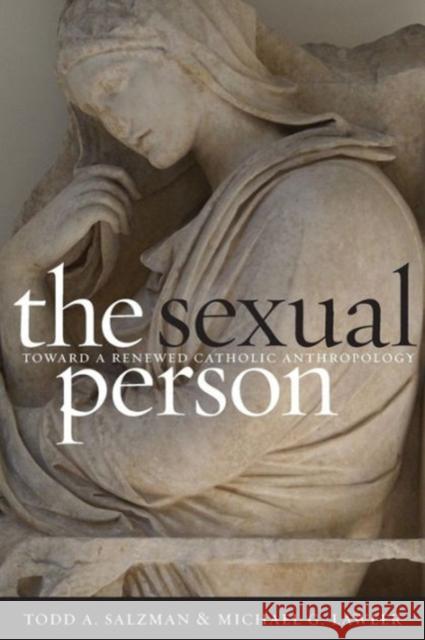The Sexual Person: Toward a Renewed Catholic Anthropology » książka
The Sexual Person: Toward a Renewed Catholic Anthropology
ISBN-13: 9781589012080 / Angielski / Miękka / 2008 / 354 str.
Two principles capture the essence of the official Catholic position on the morality of sexuality: first, that any human genital act must occur within the framework of heterosexual marriage; second, each and every marriage act must remain open to the transmission of life. In this comprehensive overview of Catholicism and sexuality Salzman and Lawler, well-published and widely respected Catholic theologians, examine and challenge these principles. Remaining firmly within the Catholic tradition, they contend that the church is being inconsistent in its teaching by adopting a dynamic, historically conscious worldview on certain issues of morality--viz., politics, economics, race, interpretation of scripture, gender--while adopting a static, classicist worldview on sexuality. And while some documents from Vatican II gave hope for a renewed understanding of sexuality--viz., in Gaudium et Spes, "the marital act promotes self-giving by which spouses enrich each other"--the church has not carried out the full implications of this approach. In short, say the authors: emphasize relationships, not acts, and recognize Christianity's culturally conditioned understanding of homosexuality. The book has two objectives: 1) to explore normative implications for sexual ethics of the methodological and anthropological developments in the Catholic tradition, by looking at the history of Catholic teaching on sexuality, contemporary debates between traditionalists and revisionists, anthropology (i.e., the nature of being human), marriage, cohabitation, homosexuality, and reproductive technologies; 2) to stimulate further dialogue among theologians, and between theologians and the Magisterium (official church teaching). No doubt that will happen Includes a foreword by Charles Curran.











